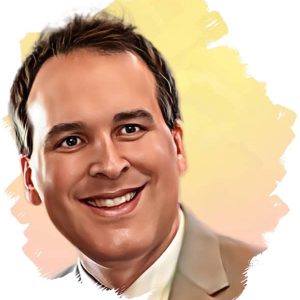Losing Brooks Robinson feels personal for so many.
Regardless of whether you watched the Hall of Fame third baseman shine in the 1970 World Series and play 23 seasons for the Orioles, listened to him — and that unforgettable Arkansas accent — call games with Chuck Thompson or Jon Miller, or had the privilege of exchanging some kind words and a pat on the shoulder at some point, you felt like you knew Brooks. If you have any Baltimore roots at all, chances are he was your hero or a hero to at least a few meaningful people in your life.
He handled that responsibility with unparalleled grace.
I was born six years after Brooks retired from the game, so I have no unique perspective on the tremendous player he was beyond the numbers and highlights we all know by heart. But as someone who is about to turn 40 and has loved baseball my entire life, I feel I have Brooks to thank for that — even as I grew up rooting on Cal and Eddie.
The special ones need only that first-name recognition, don’t they?
"There's not a man who knows him who wouldn't swear for his integrity and honesty and give testimony to his consideration of others. He's an extraordinary human being, which is important, and the world's greatest third baseman of all time, which is incidental." – John Steadman pic.twitter.com/v7MYIIQTfn— Luke Jones (@BaltimoreLuke) September 27, 2023
Brooks was my father’s hero. My mother, my aunt, and both sets of my grandparents loved him. I can still hear the reverence in every one of their voices and see the smiles on their faces when talking about Mr. Oriole.
While I never watched him play, I was technically in Cooperstown with thousands of Orioles fans who made the trip to watch his 1983 Hall of Fame induction. I was born two months after my pregnant mom, my dad, and my mom’s parents voyaged to central New York for the ceremony.
As I expressed to my mom late Tuesday night, what makes losing Brooks especially difficult is it’s also like losing another piece of our loved ones who are no longer with us and adored him. But as Jim Palmer so appropriately stated before Tuesday’s game, “I don’t think we’re ever going to lose him,” citing the memories and profound impact Brooks made on so many of us.
One of my greatest thrills working in sports media was meeting Brooks, something I surprisingly couldn’t remember doing in all my years growing up as an Orioles fan. The 2010 home opener was my first game as a reporter, and Brooks was there to throw out the first pitch as part of the 40th anniversary celebration of the 1970 World Series. After he took part in a pregame press conference, I felt compelled to introduce myself and to thank him for being a hero to my father, who had passed away six years earlier. Of course, this was the kind of sentiment Brooks had surely heard thousands of times and probably amounted to white noise at that point in his life. But he paused, looked me in the eyes, patted me on the shoulder like we were old friends, thanked me for sharing that about my dad, and offered belated condolences to my family.
I get a lump in my throat every time I think about that moment.
We crossed paths a few more times over the years, but that unique feeling seeing him never went away, which isn’t the case with most individuals you cover over time. No matter how the Orioles were doing, it was always a special night when Brooks came to the ballpark.
There are no words that adequately convey what Brooks Robinson has meant to Baltimore for nearly 70 years and will continue to mean for decades to come, but I’ve always felt the words expressed by sportswriter Gordon Beard after his 1977 retirement came the closest.
“In New York, they named a candy bar after Reggie Jackson. Here in Baltimore, we name our children after Brooks Robinson.”
The mere mention of his name will always bring a smile as well as memories of the many who loved him.























